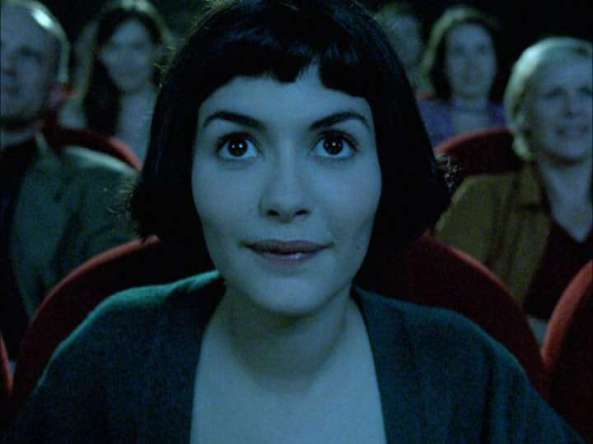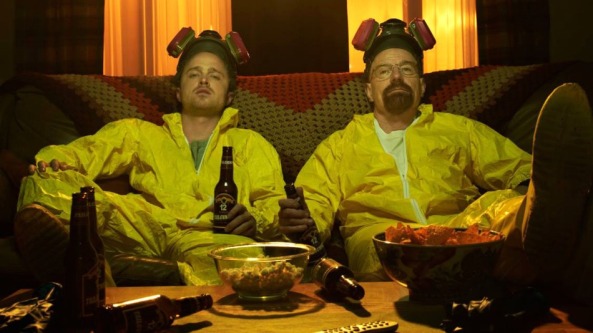When “The Hunger Games: Catching Fire” came out in November, it accomplished something no other movie in 2013 has: it made an impact.
Prior to its release, I saw genuine excitement in my friends and in my social media feeds. Jennifer Lawrence began appearing on just about every late night talk show and proceeded to be generally awesome and meme worthy.
When it finally did come out, lo and behold, it was really good – better than the original by far and fully matching the hype. It even made more money than the original and set records for the November box office. Critics discussed it like it was important, and people talked about and saw it multiple times like it mattered. And it does matter.
Each year a few moments in popular culture seem to define the entire year. They set the world on fire for moments at a time and anyone who’s anyone knows about it and is talking about it.
Pinning down just how they define the year is a bit more intangible, and it’s up to the media to write year-end lists, columns and mashups that weave our culture together when box office receipts and viewership numbers don’t paint the whole picture.
2013 has been an exciting year, as are most years when we look back each December. This year gave us the finale to “Breaking Bad,” one that garnered as many parodies as it did live viewers. It gave us the hilarious and even groundbreaking antics of Kanye West and Miley Cyrus. “Homeland,” “The Walking Dead” and “Dexter” made waves with polarizing new seasons. Arcade Fire and Daft Punk turned heads with critically acclaimed smash hits and tour and marketing choices that were talked about as much as the music. “Grand Theft Auto V” and “Call of Duty: Ghosts” were blockbuster video games that made “Thor” look like an independent film. Jimmy Kimmel pranked the Internet. We learned what the Fox says.
And a few movies came out too.
In terms of quality alone, 2013 turned out to be a pretty great year for movies. You can read my Top 15 list here. Many were moving, original and game changers, and some felt like they could be all time classics.
And for the most part, these movies made money, they got good reviews, and they’ll be here to stay through Oscar season and beyond. People continue to see them, buy them, stream them, steal them, whatever.
But increasingly, they matter less.
No longer is film the pinnacle of pop culture. TV offers more opportunities for experimentation and narrative complexity, music continues to pose discussions about race, femininity and more beyond the music itself, video games demonstrate the greatest chance for growth as a blossoming art form, and all three continue to be infinitely accessible and open to critical discourse.
Film on the other hand can seem to be more selective, more homogenized and harder to access. Filmmakers like Steven Soderbergh and others are jumping ship to TV, the mass marketed movies are losing their zest, the important and groundbreaking films are not available nationwide or in the Netflix canon, and film’s innovations to the medium, namely digital and 3D cinematography, look gimmicky and defensive at worst.
No one is dismissing the work of great artists because there is other entertainment to be found elsewhere, but when everything is to some degree competing for attention, the ability to discuss films and share them widely is waning.
Movies aren’t worse; they just aren’t cool.
*************
Looking at the films specifically designed to set the world on fire this year, only “The Hunger Games” lived up to or exceeded expectations. Even if they made an equivalent amount of money, “Iron Man 3” was not “The Avengers.” “Man of Steel” was not “The Dark Knight.” “Star Trek Into Darkness” was not the original. “Pacific Rim” was not “Transformers.” “The Heat” was not “Bridesmaids.” “The Lone Ranger” was not “Pirates of the Caribbean.”
These blockbusters came pre-packaged as events and were dead on arrival. Mainstream Hollywood movies have hit the tipping point of manufactured spectacles, where every trailer full of bombast and noise and tragic importance has started to blend together. Just how different are the trailers for the upcoming “Divergent,” “Godzilla,” “The Amazing Spiderman 2,” or “X-Men: Days of Future Past”, a YA novel adaptation, a reboot, a sequel and the seventh film in a bloated franchise? Some wondered if after the poor box office outing of a few of these films, the future might look a little different, but these upcoming attractions suggest otherwise.
Admittedly, this was a weak year for blockbusters. Only one in the Top 50 grossing movies of the year, “Gravity”, made my Top 15 list. Only five on my list made the Top 100.
“Gravity” made over $250 million domestically and it’s the sixth highest grossing movie of the year. But you tell me: was “Gravity” bigger than “Breaking Bad” this year? Was Sandra Bullock being considered for Time Magazine’s Person of the Year like Miley Cyrus was?
On the other side of the coin are the indies. Take something like “12 Years a Slave.” This movie was supposed to be “Schindler’s List” but now it’s not even an episode of “Roots.” The narrative following this film out of Toronto was that it was the undisputed winner of the Best Picture Oscar, the most important film to be released in years and an unflinching portrait of American history’s darkest moment that could not be missed.
The movie however has sunk into disillusionment, with people discussing whether the story goes far enough (it portrays a free man sold into slavery and then released, not a slave with no hope), rather than discussing why more people haven’t seen the damn thing. It’s become another depressing critics’ film that is seen as homework instead of a unifying cultural moment.
These two barely scratch the surface of my Top 15 list, and maybe the star power behind “American Hustle” turns it into a sleeper hit the way “Silver Linings Playbook” was. Maybe “The Wolf of Wall Street” will be so outrageous that it MUST be seen and continue Scorsese’s box office streak he set with “Shutter Island” and “Hugo.” Maybe Justin Timberlake ends up using his cred as the biggest star in the world to make waves for “Inside Llewyn Davis” the way he mattered to the success of “The Social Network.” But somehow it seems unlikely.
I could be overreacting. One could say that everyone seems aware of the remarkable awfulness (or in some cult circles, awesomeness) of “The Counselor” and that in it Cameron Diaz has sex with a car. You could point to all the kids who unknowingly went into “Spring Breakers” expecting to see a much different Selena Gomez starring vehicle. I after all honestly considered going as James Franco’s Alien for Halloween. There’s even the controversy surrounding “Blue is the Warmest Color.” Surely that qualifies as news.
The question is whether any of this registers beyond certain circles, if any of these are more definitive of this year in culture than the others I’ve mentioned or if the average mom who gets her news from The Today Show has any clue what “Fruitvale Station” is. Keep in mind: all of this is indefensible. There are no quantifiable metrics for coolness, and that’s exactly the reason we scream about this stuff in the first place.
*************
Depending on who you read in the media, you’ll hear one of two perspectives on the state of film in 2013: It’s in a golden age with more Oscar worthy movies than any year since 1939 or cinema is dying/already dead.
Both of these may be true. There are more good movies than the average person knows what to do with right now, anything from “American Hustle,” “Saving Mr. Banks,” “Nebraska,” “Inside Llewyn Davis,” “Gravity,” “12 Years a Slave,” “Captain Phillips,” “Dallas Buyers Club” and more. But these theaters are also showing “Grudge Match,” “Walking with Dinosaurs,” “Free Birds,” “Delivery Man” and more.
Such disparities have always been true of the movie industry, and ironically TV is no different. But the short story goes that the creative luxuries offered in serious studio filmmaking are rapidly disappearing, and even some of the biggest names in the movies today are turning to television as a way to find those creative freedoms.
Studio movies of today are built for the foreign market. Something like “Pacific Rim” made 75 percent of its worldwide gross, that’s $300 million, overseas. Louder movies complete with explosions and a lack of nuance simply perform better abroad.
They’re also built to be events, strategically released in peak moments of the season such that the opening weekend can be maximized. It’s the only thing that matters, and if your movie isn’t a hit in week one, there’s almost no such thing as a week two. With so much other product available, especially so much of it at this magnitude, you have to strike while the iron is hot, or the slate is wiped clean.
TV on the other hand allows time for an audience to grow. In TV, characters aren’t formed in an hour, and neither is a fan base. HBO especially has a grasp on their demographics, but to see the viewership of “Breaking Bad” multiply over five seasons (averaging 1.2 million its first season to 10.4 million for its finale) is a good example for how chatter, buzz and instant access to the show’s entire backlog can help a show over time.
Most of the buzz for quality movies however is generated is at film festivals. Sundance, Cannes and Toronto are the biggies. That’s because the prestige pictures for grown-ups aren’t marketed for the masses but are strategically placed for the press and for the industry, both of whom have a hand in the wonderful thing we call the Oscar race, by the end of which a few of these movies come around again.
By the time these movies are released, much of that critical buzz has faded and moved on to new and better things. The critically important films of the year remain in that film festival and awards circuit niche. Sometimes they’re movies that just get buried in a sea of hype, and sometimes they’re movies that literally don’t make it out of New York or LA for even the above average movie watcher (myself included) to see prior to hitting Netflix.
But unlike in music or TV where the most under the radar stuff remains cool because it can be streamed and accessed with ease, critical discourse for film forms into increasingly tiny pockets of the culture.
Fortunately, there’s a name for that small group of people; they’re called “cinephiles.”
*************

There remains a sense at film festivals and on certain premiere nights that when a hotly anticipated movie is about to screen, everyone in that audience “gets it”.
These people are “cinephiles.” They’ve done their homework, they know the masters, they prefer a certain way of watching, and they believe that film is not just good but that it is still a medium that deserves to be exalted, to be worthy of the term “cinematic.”
It sounds pretentious when you describe it like that, but these are the people to whom the release of a new Alexander Payne movie really matters. They make the effort to find it at an art house theater or a festival. Unlike a music hipster who only listens to unsigned artists on vinyl, cinephilia is less so about watching only the work of obscure, foreign auteurs or of only watching movies on film stock. It’s about making the movies important.
But as the critical discourse begins to shift elsewhere, toward TV, toward the “Netflix Canon”, those people are lessening in number. Why drive miles outside of Nebraska just to see “Nebraska” when “Orange is the New Black” is available with the click of a button and there’s plenty of intelligent conversation to be found?
A.O. Scott points out in his impassioned defense of cinema as a unique medium that people are waking up to the fact that, be it TV, IMAX or YouTube, it’s all moving images, it’s all art and it’s all screens. The medium matters less:
“The infrastructure of a multiplatform future is before us, and resistance to it can look like an especially tiresome kind of sentimentality. Cinephilia is nostalgia. We might keep going to the movies out of habit, or because it’s sometimes nice to leave the house, but we are losing the old, sustaining belief that this is a special and exalted cultural activity, the supreme mode of participation in the popular arts.”
To sum up Scott’s point more deeply, what’s disappearing is an appreciation for what makes cinema unique. Modern TV has a reliance on talk and narrative structure that currently isn’t found in movies like “Gravity,” “All is Lost” or “Before Midnight,” among many others this year.
It’s what makes TV great and why it has so much room for potential. For the most part though, and this is fairly reductive, I look at TV and see only story and acting. Occasionally shows like “Louie” and “Girls” introduce some style to tell stories in a way only a camera can, or what Richard Brody calls the “dependent image” versus the “essential image.” Hopefully those more versed in television than I am have other examples.
What I fear though is the convergence of these mediums that Scott sees as inevitable. I see filmmakers I respect, like Christopher Nolan, J.J. Abrams and Joss Whedon, bringing TV qualities to the multiplex in the shape of blockbuster size spectacles. Clues, Easter Eggs and stories that depend on their colorful dialogue pepper some of the biggest blockbusters of the last decade. Marvel for one has been clever about labeling their output a “cinematic universe,” but really, are these movies, or are they episodes, teasers for the next one and for a finale that never seems to come?
I worry that the unique qualities that still exist between film and television might just fade together into a blur of homogeneous content and moving images. But TV hasn’t been able to support an auteur theory in the way cinephiles now take for granted. It also doesn’t have the indie or foreign scene that introduces some of the most interesting work into the pipeline. Does that channel for those artists go away if the dividing line between what we call film and what we call TV disappears?
Cinema to me is not an act of nostalgia. In my view, it’s the most exciting medium for art available today. Film will never be what it was in the ‘40s before television even existed, but I want it to really matter to my generation. If TV is in a supposed “golden age,” couldn’t film have another one too? How exciting it must be to feel so cool.

